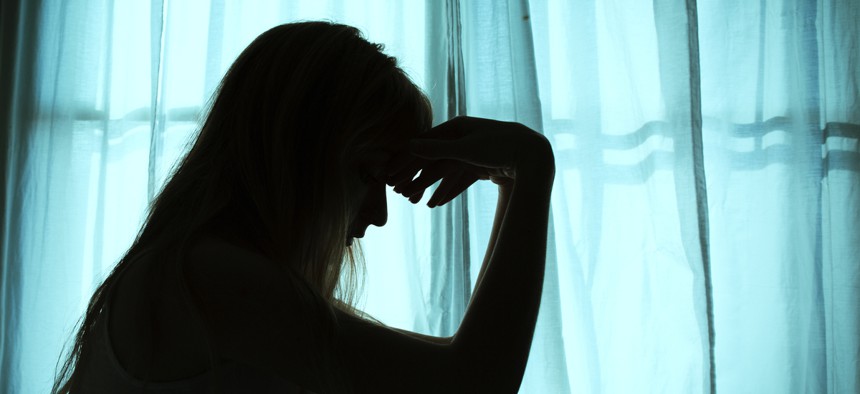American Mental Health Hits 20-Year Low

The current numbers paint a grim, but unsurprising, picture of Americans’ outlook on 2020. Shutterstock
A new Gallup poll finds that fewer Americans are assessing their mental health positively during the pandemic.
The coronavirus pandemic and its associated lockdowns, prolonged unemployment, social isolation, and general uncertainty appear to have contributed to a decline in Americans’ mental health—to the point where self assessments have hit a nearly 20-year low.
Seventy-six percent of adults now rate their mental health as “excellent” or “good,” a nine-point decline from 2019, according to a new Gallup poll that surveyed 1,018 people between November 5 and November 19. Since 2001, the polling and research firm has been surveying Americans about their mental and emotional wellbeing, and in each of those years, between 81% and 89% of respondents had a positive outlook on their health.
The decrease is found in the reduced number of people rating their mental health as excellent—34% this year compared to 43% last year. The same percentage of people—42%—said their mental health was good this year compared to last year.
The current numbers paint a grim, but unsurprising, picture of Americans’ outlook on 2020 and the coming winter, during which the coronavirus death toll and positive case rate are expected to continue to climb, even as a vaccine for Covid-19 will begin to roll out.
Gallup researchers noted that 2020 has been a hectic, unsettling year. “The latest weakening in positive ratings … are undoubtedly influenced by the coronavirus pandemic, which continues to profoundly disrupt people's lives, but may also reflect views of the election and the state of race relations, both of which were on Americans' minds this year,” the researchers wrote.
While mental health numbers were down, there was little change in people’s reports of their physical health.
Not all Americans have experienced the same rate of mental health decline. Republicans, independents, women, those who never attend religious services, and unmarried people were among the groups that all saw double digit drops in rating their mental health as excellent. Democrats had the least change in their ratings, dropping by only one point compared to last year. Those who attend weekly religious services were the only group to report better mental health this year than in 2019.
The groups with the lowest excellent ratings include women (27%), unmarried people (27%), those living in households with less than $40,000 in income (27%), and young people aged 18 to 29 (28%).
Though the Gallup poll only surveyed adults, other recent surveys have found that children and teenagers similarly describe similar experiences. Virtual schooling and isolation have both increased kids’ reports of feeling unhappy and depressed. Some school administrators worry that anxiety sparked by the pandemic will take a long time to dissipate, even after a vaccine helps society return to normal.
Another recent analysis of Census Bureau data found that anxiety and depression might be particularly hard-hitting in major metropolitan areas.
Throughout the pandemic, mental health experts have been reminding people to engage in activities known to boost mental health—such as trying meditation, taking a break from social media and even just going outside.
Earlier in the year, the World Health Organization advised that rebuilding and scaling up mental health services will need to be a key component of pandemic recovery to ensure that those who have lost loved ones or are suffering from long-term effects of the coronavirus have adequate support.
One recent study found that one in five coronavirus patients were diagnosed with a mental health disorder such as anxiety or depression within three months of testing positive for the virus. These emotional side effects of Covid-19 can lead to sleeping issues, increased alcohol and drug use, and chronic stress.
In May, Dr. Tedros Adhanom Ghebreyesus, WHO director-general, said that “it is now crystal clear that mental health needs must be treated as a core element of our response to and recovery from the Covid-19 pandemic.”
“This is a collective responsibility of governments and civil society,” he said. “A failure to take people’s emotional well-being seriously will lead to long-term social and economic costs to society.”
Emma Coleman is the assistant editor for Route Fifty.
NEXT STORY: The Month the Pandemic Started to End






